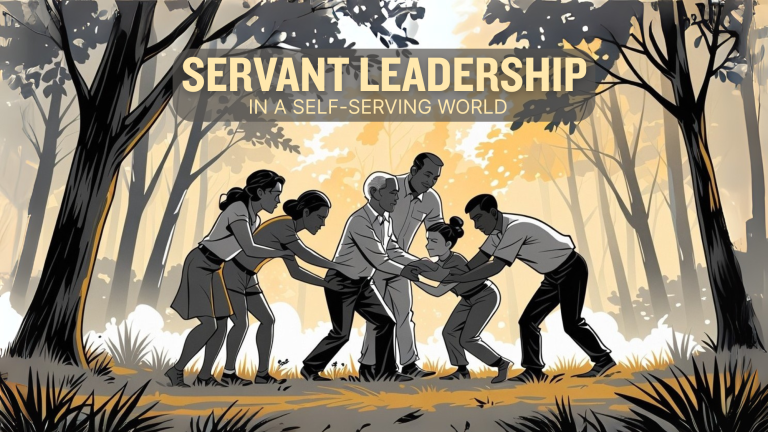
When people think about leadership today, they often picture power, titles, or influence. But Jesus gave us a completely different picture: “For even the Son of Man came not to be served but to serve, and to give his life as a ransom for many” (Mark 10:45).
That means true leadership isn’t about how many people follow you — it’s about how many people you serve. And in a world that often rewards self-promotion, servant leadership is both countercultural and desperately needed.
Greatness Comes Through Serving
Our culture tells us greatness is about climbing higher. But Jesus said, “Whoever would be great among you must be your servant” (Mark 10:43).
Think about the people you respect most. Chances are, they weren’t the loudest or most powerful, but the ones who showed up for others. Servant leaders earn something greater than a title — they earn trust.
Servant Leaders Multiply Influence
Here in East Texas, we see this principle at work all the time. The teacher who stays late to help a struggling student. The coach who invests in kids beyond the scoreboard. The business owner who puts employees’ needs ahead of profit.
When leaders serve, they inspire others to do the same. Their influence multiplies — not because they demand it, but because they model it.
Serving Brings Real Rewards
There’s a paradox to servant leadership: the more you give, the more you gain. Stronger teams. Healthier families. Deeper community.
And the rewards aren’t just practical. Serving others aligns us with God’s design. As Paul wrote in Philippians 2:3–4, “In humility count others more significant than yourselves. Let each of you look not only to his own interests, but also to the interests of others.”
Three Simple Ways to Lead as a Servant This Week
- Do one act of service in secret. Help someone without expecting credit.
- Ask better questions. Try, “What can I do to help you succeed?”
- Shine the spotlight. Use your voice to recognize and encourage someone else.
That’s a Wrap
Texas Forest Country has always been defined by hardworking, community-minded people. This week, let’s double down on that heritage by choosing to lead through service.
The world doesn’t need more self-serving leaders. It needs servant leaders — people willing to trade ego for humility and status for stewardship. When we lead that way, homes, businesses, and communities grow stronger.
That’s leadership that lasts.